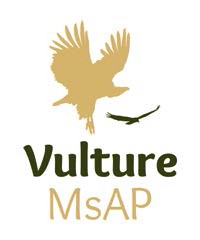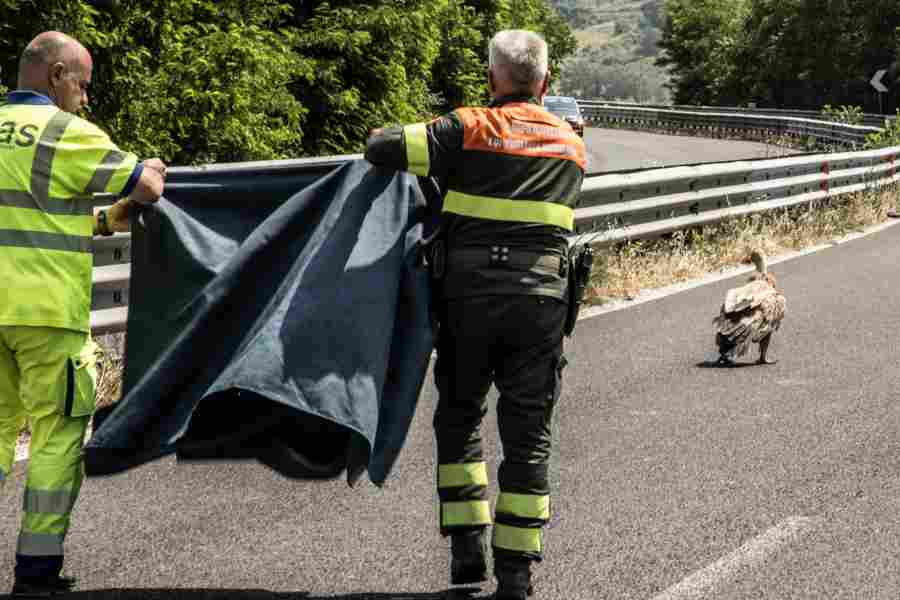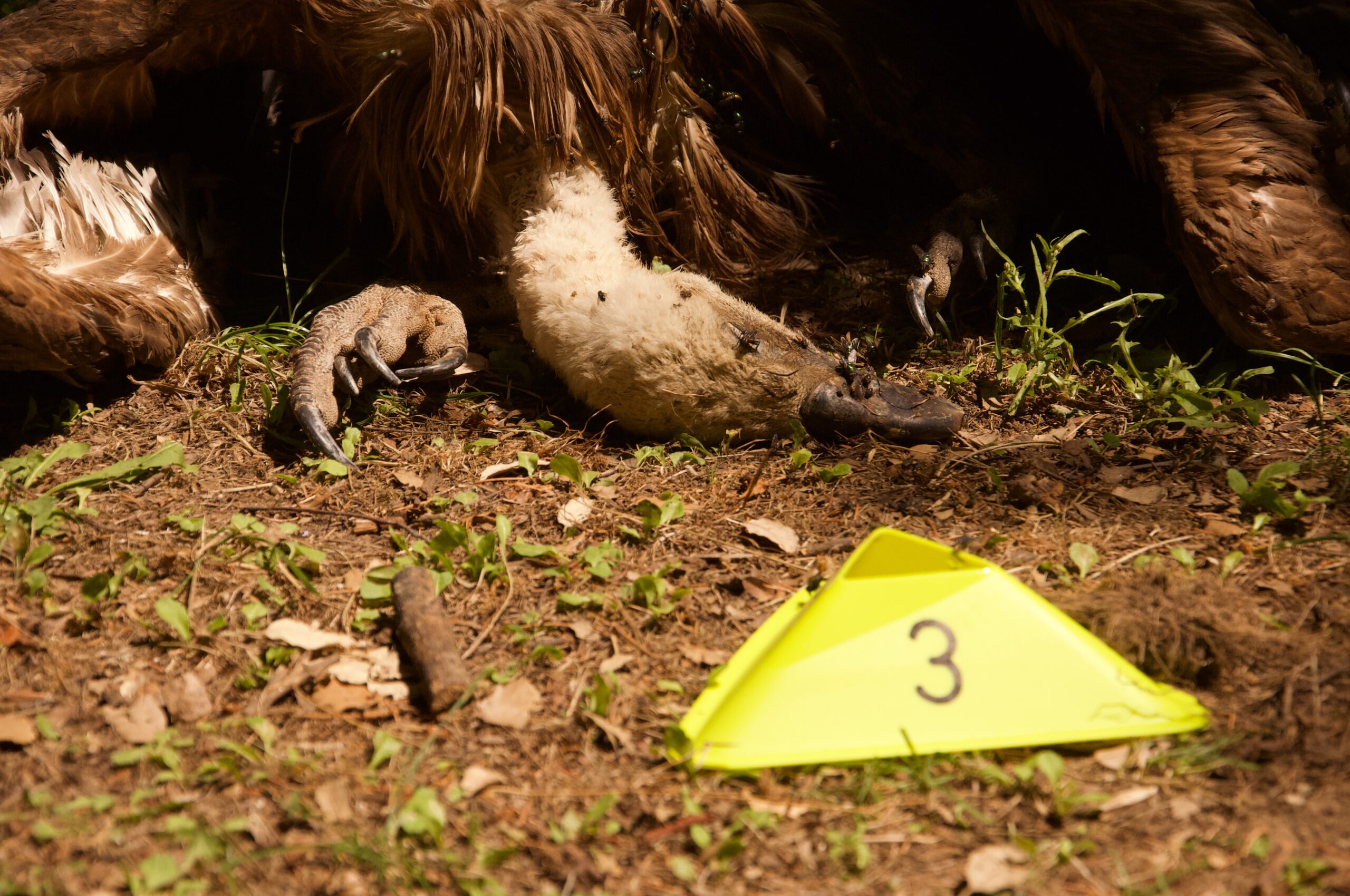
It is our sad duty to report of the poisoning of at least three Griffon vultures in southwest mainland Greece.
Colleagues at Bulgaria’s Fund for Wild Flora and Fauna (FWFF) who work on Griffon vulture conservation in the country first reported some alarming behaviour from one of the birds they fitted with a GPS transmitter. The bird, 1H-Wild, had been caught in the Kresna Gorge in the south west of Bulgaria in July 2017 and fitted with a transmitter, and has been tracked since.
Immediately after capturing and tagging, 1H-Wild moved to Pindus/Central Greek Mountains, where it spent the rest of last year´s summer. In the winter 2017/2018 it moved to Eastern Rhodopes. In April 2018 it flew to Akarnanika (SW Greece) and moved between Akarnanika and Messolonghi several times. Then on 13.05.2018 the bird moved from Akarnanika to Messolonghi and from there directly to Central Greek Mountains. 1H-Wild was last recorded visiting the central Greek mountains near Agrafa. The data from the GPS transmitter suggest that 1H-Wild fed in the area and moved some 5km away, but then stopped moving completely.
Recently Hristo Peshev, from the FWFF, visited the area and found 1H-Wild, almost fully decomposed.

As poisoning was suspected the alarm was raised and the Hellenic Ornithological Society anti-poison dog unit, along with a warden from the Tzoumerka National Park, went recently to the relatively remote area to try to find more birds. Near the site where 1H-Wild was last recorded the team unfortunately discovered two more dead Griffon vultures, both untagged and unringed birds. Near the site of these two vultures was the carcass of a calf that was half eaten, and we believe that this was used as bait as nearby there was a plastic bottle with white powder residue.
The remains of all three birds, and the plastic bottle, were collected, and were frozen, so that proper toxicological analysis could be done to establish exact cause of death.
The news is a huge blow to Griffon vulture conservation in the Balkans and for our friends who have been working tirelessly to protect the species. These deaths demonstrate the need to work across international borders to tackle the issue of illegal poisoning.
The threat to vultures
Poison is the main threat to vultures worldwide, as identified in the Vulture multi-Species Action Plan, a comprehensive strategic document that highlights priority for action for the conservation of 15 species of old world´s vultures, and that was recently adopted by the signatories of the Convention for Migratory Species (CMS).
In the area where this latest poisoning incident occured, south west mainland Greece, the remote mountains provide superb feeding opportunities for wolves and bears, which are making a remarkable comeback in the area due in part to abandonment of traditional livestock practices. The free ranging cattle that have replaced the goats in the area, provide a rich supply of food for bears and wolves. SW mainland Greece where the latest poisoning occurred may be an ecological trap for vultures.
Fighting poisoning
Many countries dedicate considerable resources to fight the threat of poisoning to vultures. The EU LIFE budget for example funds anti-poisoning actions in many projects dedicated to vultures, including most of the LIFE projects in which the VCF is participating.
In mainland Greece there are three anti-poison Dog Units, two managed by HOS and the other one by WWF Greece, created in response to a number of poisoning incidents related with the illegal use of poisoned baits. However, the use of poison against predators (wolf, bear, but also foxes, feral dogs, etc) continues to be frequent in Greece, and across the Balkans, and this has caused impacts not only on Greek vultures – now exceedingly rare, but also scavengers from neighbouring countries.
The Balkans Anit-Poisoning Project
In parallel with the vulture conservation programmes we are contributing to in the Balkans (see Vultures Rewilding and Vultures back to Life projects), the VCF has also launched a new project to combat poisoning in the region, the Balkans Anti-Poisoning Project (BAPP), with actions in five Balkan countries (Albania, Bosnia and Herzegovina, Croatia, Macedonia and Greece).
In Greece the BAPP project will support the implementation of several activities contributing towards the ongoing efforts against wildlife poisoning.




